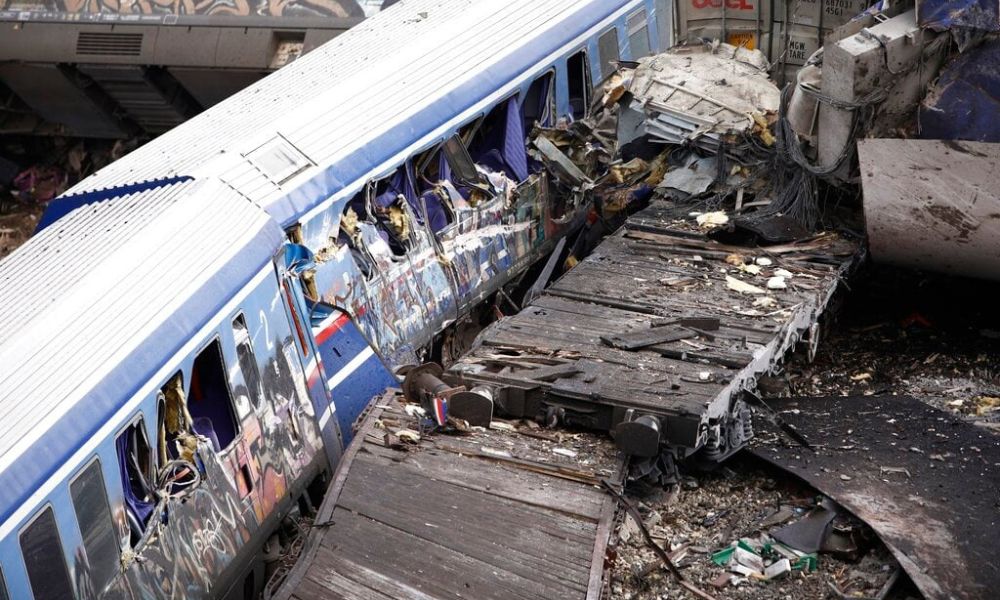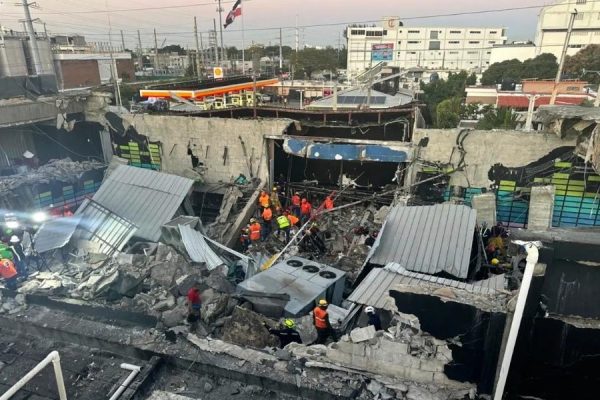Athens: Hundreds of thousands protested across Greece on Friday, demanding justice on the second anniversary of the tragic train crash.
The accident, which happened on February 28, 2023, near the Tempi gorge, killed 57 passengers, mostly students.
An inquiry revealed that the safety issues behind the crash remain unresolved, while a judicial investigation is still ongoing.
No convictions have been made, fueling public outrage and calls for accountability from the government and authorities.
Protests were planned in multiple cities, with thousands gathering in Athens’ Syntagma Square under tight police surveillance.
Transport Disruptions
A general strike affected transportation as air traffic controllers, train drivers, and seafarers halted operations nationwide.
All domestic and international flights were grounded, and sea transport was disrupted as workers joined the protests.
Doctors, teachers, and lawyers also participated in the strike to pay tribute to the victims of the tragic accident.
Businesses shut down, theaters canceled performances, and students attended classes dressed in black as a mourning gesture.
In central Athens, banners read “Government of murderers,” reflecting the anger toward Prime Minister Mitsotakis’ administration.
Government Criticism
The center-right government, re-elected in 2023, has been criticized for failing to investigate political responsibility.
Authorities insist that the judiciary is responsible for handling the inquiry, denying any governmental wrongdoing.
Public frustration has grown, particularly in a country still recovering from a decade-long financial crisis.
Many citizens feel government negligence contributed to the disaster and demand stronger railway safety measures.
Protesters accused officials of attempting to cover up evidence and delaying justice for the victims’ families.
Emotional Tributes
Demonstrators painted the victims’ names in red outside the parliament building as a sign of remembrance.
Many held signs reading “I have no oxygen,” echoing a victim’s last words during an emergency call.
Students in Athens carried black balloons while marching, symbolizing their grief and frustration over the tragedy.
One protester, Christos Main, stated, “This wasn’t an accident; it was murder,” highlighting widespread anger.
Another protester, Evi, accused the government of trying to suppress critical details about the crash.
Political Repercussions
Opposition parties continue to pressure the government, demanding accountability and a parliamentary investigation.
A poll by Pulse found that 82% of Greeks consider the train disaster one of the country’s most significant issues.
The survey also showed that 66% of respondents were dissatisfied with the investigation into the accident.
Next week, parliament will debate the formation of a special committee to examine political responsibility.
Students in Athens chanted, “Text me when you get there,” referencing messages victims sent before the crash.
Government Response
Prime Minister Mitsotakis addressed the tragedy in a Facebook post, pledging to modernize the railway system.
He acknowledged the crash as a failure, stating, “That night, we saw the ugliest face of the country.”
Mitsotakis admitted that human errors and long-standing infrastructure issues contributed to the disaster.
Despite these promises, public trust in the government remains low, with many demanding immediate reforms.
A 45-year-old nurse, Litsa, expressed concerns: “We’re here because we’re parents… tomorrow it might be our children.”












